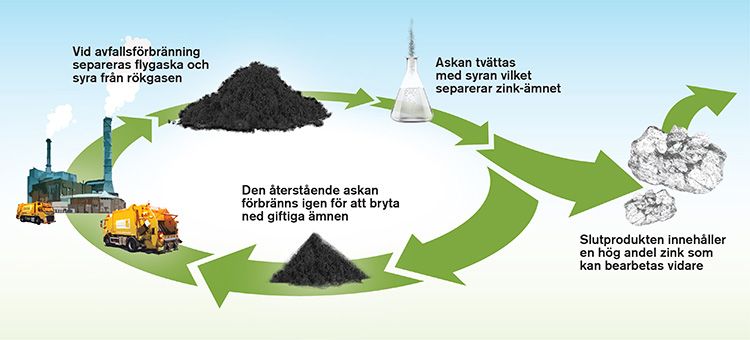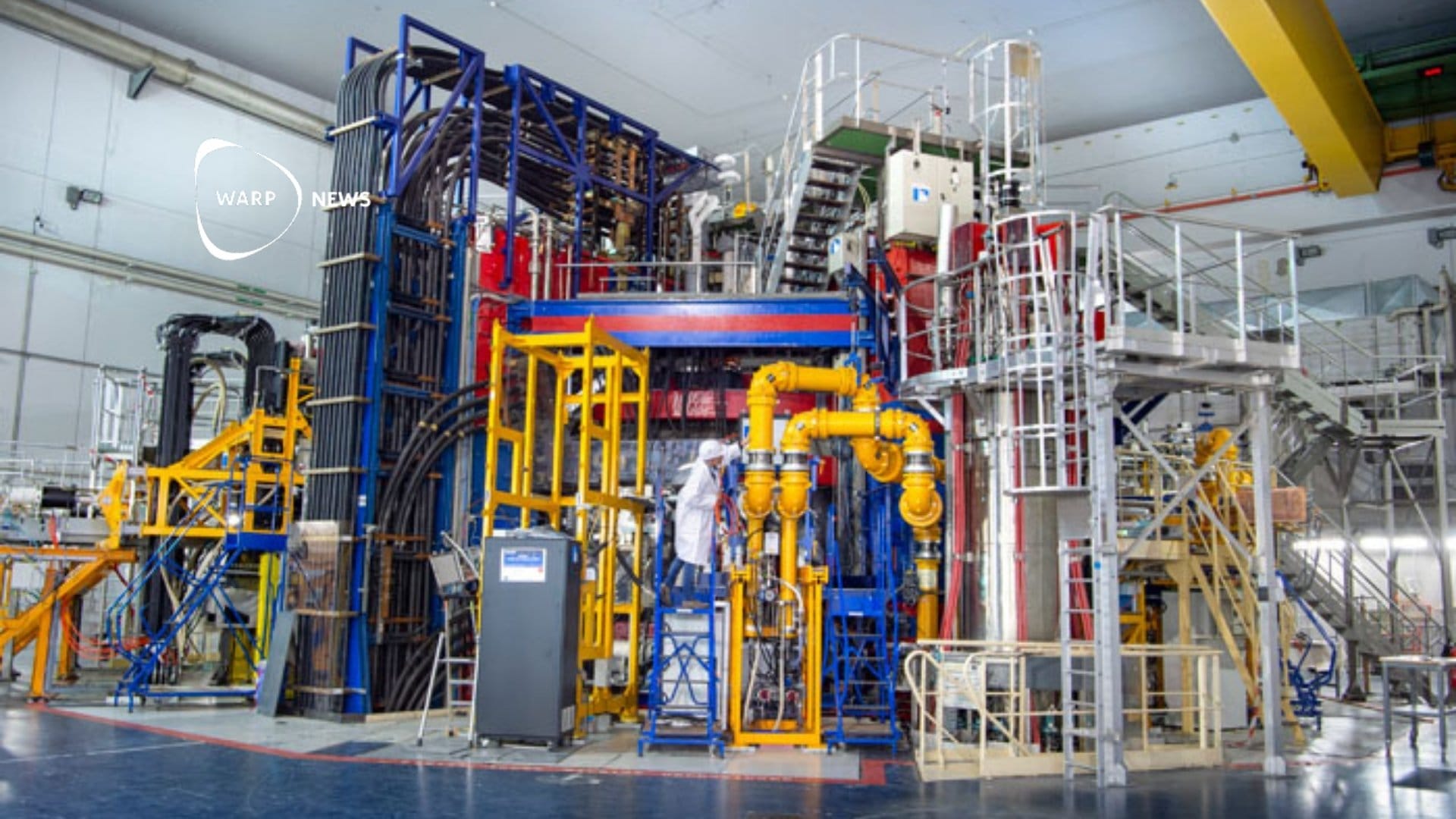
🏭 Toxic ash from waste incineration is transformed into precious metals
By washing toxic fly ash with acid, 90 percent of the ash can be reused, among other things by extracting zinc and other metals.
Share this story!
In 2019, 1.2 million households in Sweden received their heat from district heating plants that burned waste. Waste incineration is thus an important part of the Swedish energy supply, but it is not without problems. One problem is that the process creates toxic fly ash. Better yet, a research team from Chalmers has now developed a method that can detoxify almost all ash .
A major advantage of the method is that it can extract valuable metals such as zinc, which makes it more profitable to treat the ash. In short, the method involves separating out the fly ash and then washing it with acid. It separates zinc and other metal ions which can then be extracted and processed into new raw material.

The basic method for this has existed since the 1990s, but the Chalmers researchers have developed and streamlined it.
- In our pilot study, we found that 70 percent of the zinc found in fly ash can be recycled. Then zinc is not extracted as pure metal, which is a much more demanding process, but as a zinc-rich product that can be sold to the metal industry and further processed in existing production lines, says Karin Karlfeldt Fedje, associate professor at the Department of Architecture and Civil Engineering and researcher at recycling and the waste management company Renova in a press release.
Once the precious metals have been separated, the ash is treated again to reduce the toxicity.
- After the extraction of zinc, the ash is burned again to break down the dioxins. Up to ninety percent of what then remains is bottom ash that can, for example, be used as construction material, says Karin Karlfeldt Fedje.
In Sweden, waste incineration produces 250,000 tonnes of fly ash every year. Across Europe, it is about ten times as much ash. If 90 percent of this ash can be reused instead of being stored as hazardous waste in landfills, one of the most serious negative environmental consequences of waste incineration is minimized.
By becoming a premium supporter, you help in the creation and sharing of fact-based optimistic news all over the world.


